The Fifth day of the Fifth month on the Chinese lunar calendar marks the celebration of the Duanwu festival (端午). “Duan Wu”(端午) in Chinese means the beginning of the fifth month. Originating from China, the festival is widely celebrated in East and Southeast Asia with dragon boat racing, eating zongzi rice dumplings, and commemorating China’s earliest known poet, Qu Yuan(c. 340–278 B.C.E). Today most Chinese believe that the festival is to remember the virtues of the patriotic poet who served as a loyal minister of King Huai who reigned from 328 to 296 B.C.E. over the state of Chu. However, the origins of the Duanwu festival have nothing to do with Qu Yuan. Folklorists, historians, and anthropologists have proposed multiple explanations for the origin of the Duanwu festival.
The Duanwu festival as we now know has its roots in plague-prevention rites in the summer solstice and fertility rites to ensure good harvests dating back at least two thousand years in southern China. In this article, we explore the reasons why the Chinese consider the Fifth month of the Lunar Calendar inauspicious and evil as well as the rituals employed to ward off evils.
Why is the Summer Solstice considered inauspicious by the Chinese?
Influenced by Daoism, the Chinese believes that all things of heaven and earth are connected by the life force, qi (气). The flow and change of qi is dictated by two opposing but complementing energies: Yin and Yang. Generally, yin is characterized as a feminine, dark, and cold energy while yang is masculine, bright, and hot. Moon and sun, female and male, night and day, cold and hot, all are examples of yin-yang dichotomy. With season changes, yin and yang forces ebb and flow. The Chinese consider the balance of the yin and yang forces within a human body is central to maintain and restore health. If the balance is tilted, illness might follow.
The Duanwu festival, also called the “double fifth” (fifth day of the fifth month), corresponds to the period around the summer solstice. During the summer solstice, the yang force reaches its apogee, beaconing the inception of threatening the yin force and disrupting the balance of qi. At the same time, the unpleasantly hot and humid summer weather facilitate the spread of infectious diseases and harmful insects. Therefore, the double fifth has been considered strongly inauspicious and evil since the fourth century B.C.(the Warring States). It has also been treated as a time for the prevention of plagues and the expulsion of evil spirits.
Traditional practices to ward off evil spirits and avoid plague
Eat zongzi

Texts dating as early as the 3rd century record a variety of measures people took for the exorcism of the “gods of plague” that took advantage of the imbalance of yin-yang. In the late-third-century Record of Local Folkways (Feng Tu Ji) by Zhou Chu, people (in today’s Jiangsu Province) ate Jiaoshu (角黍) to help their body achieve an equilibrium between the Yin and Yang energies on the day of Duanwu. Jiaoshu are millet rice dumplings wrapped with wild rice leaves (zizania latifolia) into horn-shaped package and boiled in lye water (obtained by leaching wood ashes). According to Traditional Chinese Medicine, millet is considered to have Yang enegery while wild rice leaves are yin. Zongzi made of the two ingredients was believed to help human bodies recover the balance of the yin and yang forces.
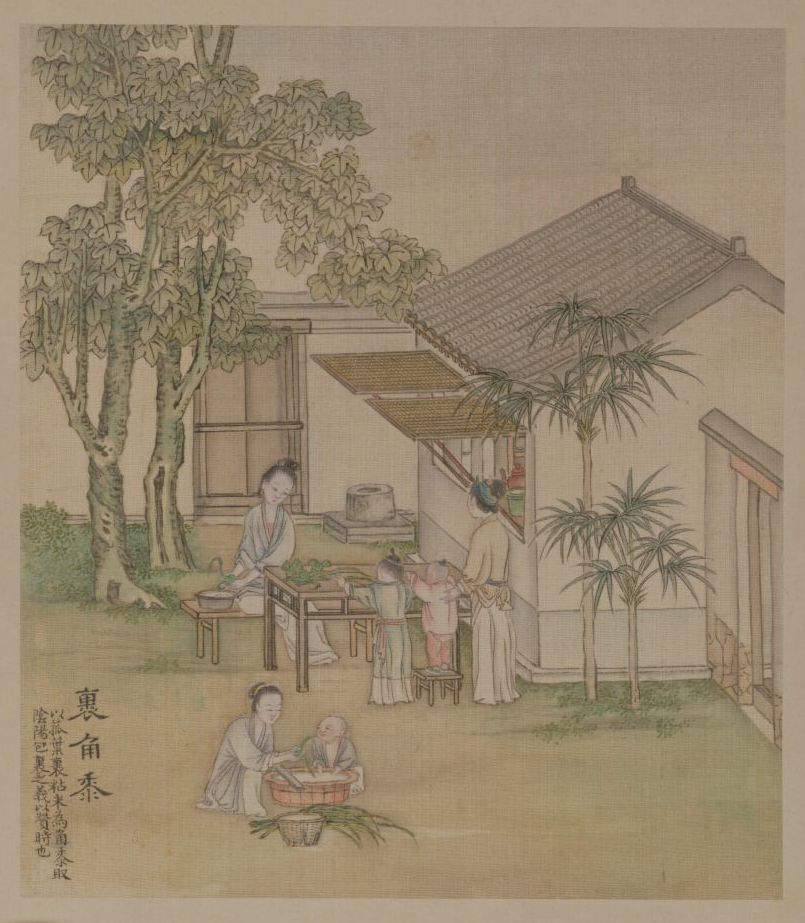
Gather medicinal herbs
Traditional Chinese Medicine believes that medicinal herbs gathered around the summer solstice are at their best as they absorb a high dose of yang energy and thus have the greatest medicinal effect.
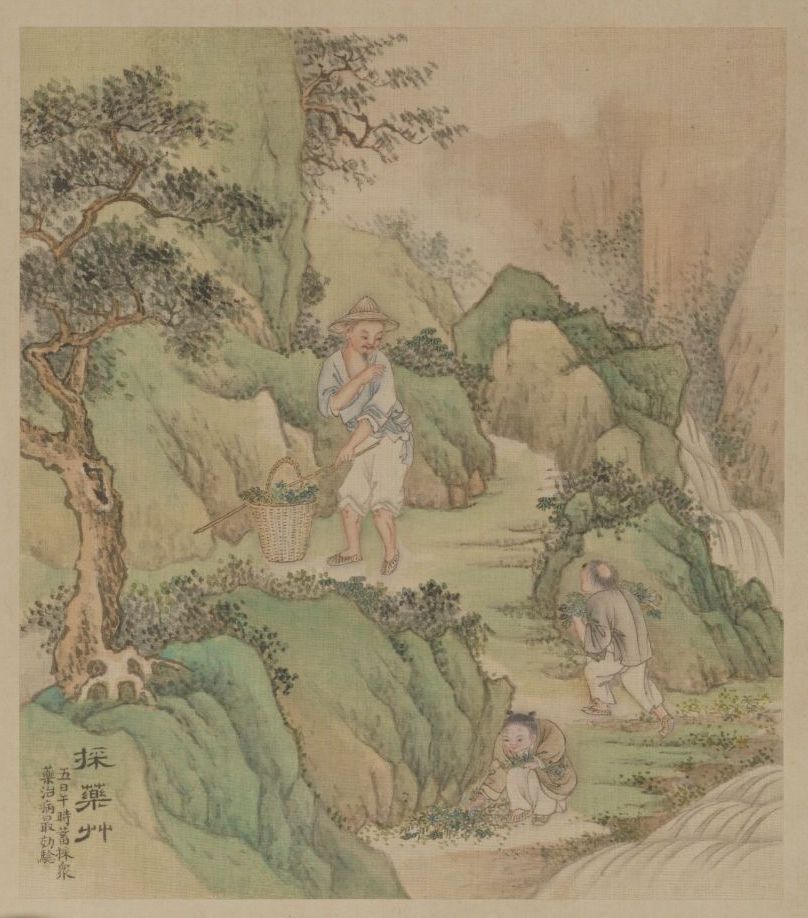
On the day of the Duanwu festival, bouquets of aromatic plants like wormwood, calamus (sweet flag), and garlics are tied together and displayed on the front door of each household to ward off evil spirits and diseases. Calamus is known as the “water sword” since its leaves shaped like sword. Argy wormwood is made into “man-shaped figures for hanging on doorways” to “exorcise noxious influences”. Their strong aroma is believed to be an offensive combatant against evil. Another tradition is to wear sachets filled with aromatic herbs and spices. Fragrant calamus and wormwood are also boiled to make bath water. It is believed that taking a herbal bath helped to clean off bad luck and ward off evil.
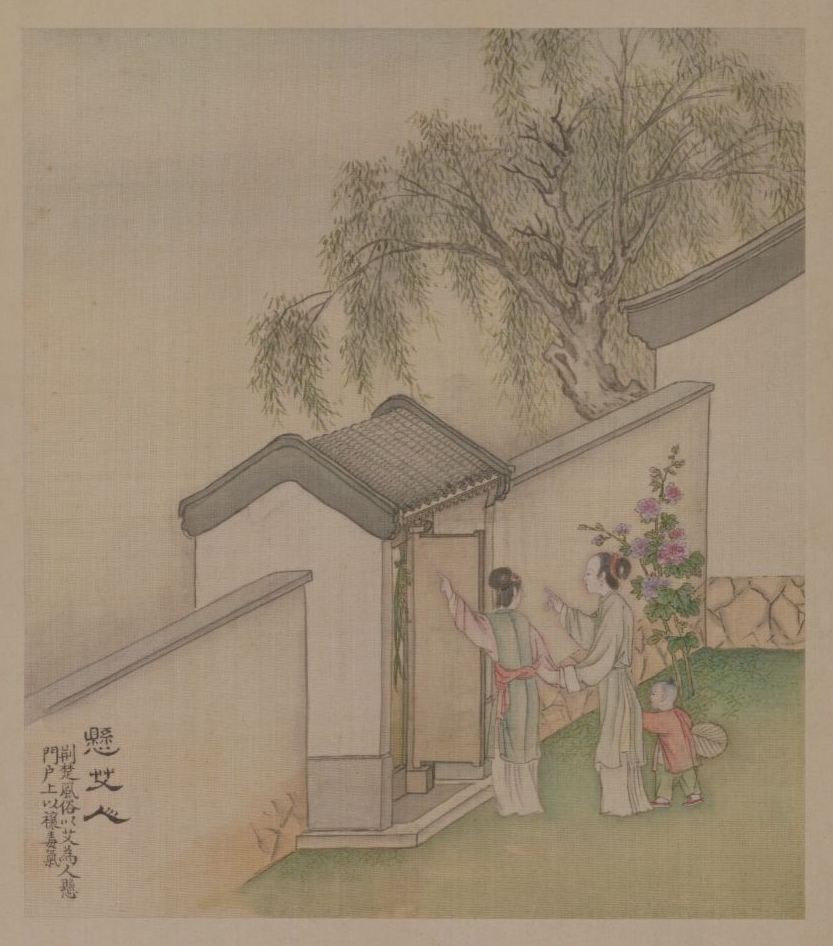
Use talismans and charms
Other than herbs, images of exorcists and poisonous creatures are found on people’s front doors. The “Five Poisons” (五毒) motif is embroidered on clothing, sachets, fans, and paper cuts. The five poisonous animals represented in the motif are snake, centipede, scorpion, lizard, and toad (or a spider). People believe that an image of the five venomous creatures would accumulate enough poison to counteract any other pernicious influence.
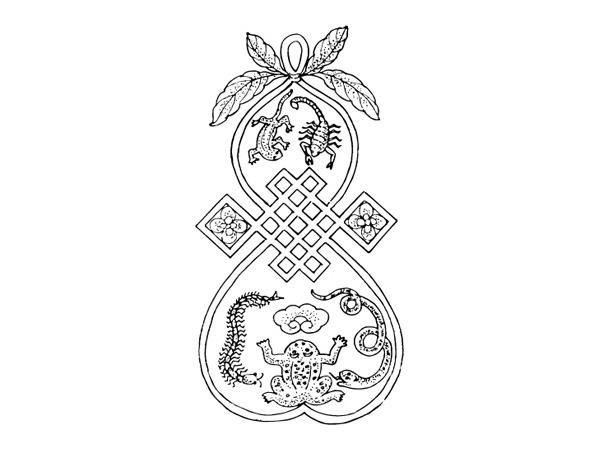
Drinking realgar wine (雄黃酒) is considered as an effective combatant against poisonous insects and diseases. Realgar is an arsenic fulfide mineral, also known as “ruby sulphur.” Realgar wine is made by soaking slices of dry calamus root in liquor and mixing in a little realgar powder. In the story of Lady White Snake, Lady White (Bai suzhen) revealed her true form as a large white snake after drinking realgar wine on the double fifth. Her husband was shocked to death when he realized his wife was not human. The story has been adapted into many films, TV shows, stage plays, and operas. As a result, it further popularizes the belief that realgar wine can ward off poisonous creatures.
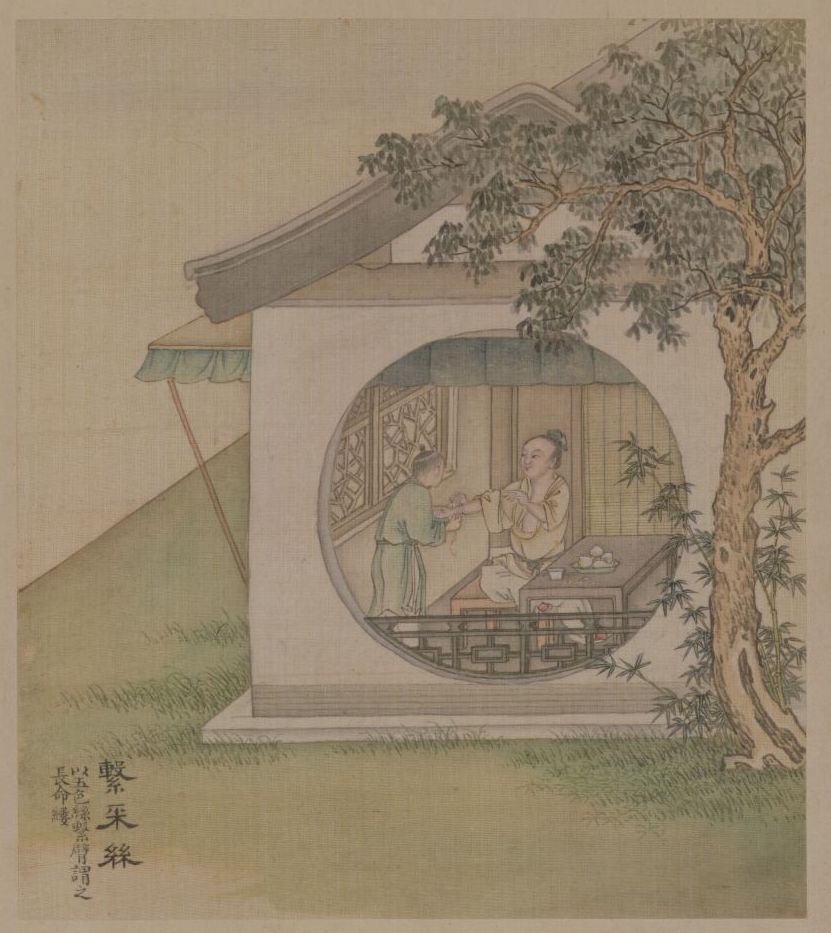
Another charm that people wear on this day is five-colored silk threads. According to folklore, women in the Han dynasty used to dye the raw silk into red, green, white, black and yellow to make the five color threads. The threads that were fastened to the arm were called “longevity threads,” “life-prolonging threads,” or “weapon-averting ties.” The Chinese believe that the five colors represent the five directions: east, south, west, north and central. Wearing accessories made of the five-color threads can provide a full body protection against evil spirit.
References:
Carol Stepanchuk and Charles Wong. Mooncakes and Hungry Ghosts: Festivals of China. San Francisco : China Books & Periodicals, 1991.
Christian Roy. Traditional Festivals: A Multicultural Encyclopedia,Volume 1. ABC-CLIO, 2005.
Duanyang Story Atlas by Xu Yang (徐扬端阳故事图册). Conserved at the Palace Museum in Beijing, China. https://www.dpm.org.cn/collection/paint/232166.html
Rongguang Zhao. A History Of Food Culture In China. Singapore: World Scientific Publishing Company, 2015.
Wendy Swartz, Robert F. Campany, Yang Lu, and Jessey J.C. Choo. Early Medieval China: A Sourcebook. United States: Columbia University Press, 2014.